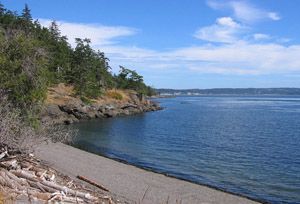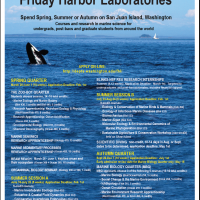Still looking for a course to fulfill the ‘Policy and Decision-making’ course requirement? Still looking for a course to fill out your winter schedule? ESRM 321 is still accepting students. See below for more information!
ESRM 321 (SLN 13576)
Finance and Accounting from a Sustainability Perspective (PoE-approved elective!)
Winter Quarter 2011
Sustainability. Various definitions of sustainability are used, but all share a common understanding that sustainability refers to integrating environmental, financial, and social elements in order to meet the needs of people, businesses, governments, and organizations today without compromising Earth’s capacity to provide for future generations. Integrating these three is “triple bottom line,” which might be thought of as balancing the three Ps: people, planet, and profit. In business, the term bottom line refers to net income or profits because it is the last (i.e., bottom) line of a company’s income statement; profits are essential because a business can’t survive (i.e., is unsustainable) without profits. Sustaining the planet over the long term depends not on one (i.e., monetary profits) but on three bottom lines that work together as part of a system.
Finance and Accounting. We will explore accounting and finance, from both corporate and consumer perspectives. Accounting involves recording, classifying, summarizing, and interpreting business transactions in order to provide information about the company’s performance, liquidity, growth, value, etc. Finance refers to flows of money throughout an economy among individuals, businesses, non-profit organizations, and governments and associated processes, institutions, and markets. Sample topics include:
· corporate environmental and social responsibility (i.e., sustainability) performance
· finance, accounting, economics, and international business concepts and models
· money, banking, and the Federal Reserve
· stock markets and investing
· financial statement analyses
· counterfeiting deterrence (e.g., money, pharmaceutical drugs, identity theft)
We will explore the meaning and importance of sustainable business practices that respect and adhere to best environmental science methods and ethical social responsibility standards. The context for this exploration is through reviewing corporate annual financial AND sustainability/environmental/social responsibility reports. While firms that trade on stock exchanges are required by law to publicly report their financial performance, there are no laws that govern how businesses disseminate information on their social responsibility and environmental efforts. Recently, stakeholders have encouraged businesses to voluntarily report environmental and corporate social responsibility performance, audited by third parties, on a regular basis. We will analyze annual financial and sustainability/corporate social responsibility/environmental reports in order to assess and compare corporate triple bottom line performance. Hopefully, the bottom line of one enhances the others or “doing well by doing good.”
ï COURSE PROJECT: SUSTAINABILITY PERFORMANCE REPORT ð
The goals of this exercise are to extend your knowledge of financial performance reporting to sustainability performance reporting; to assess and compare the sustainability performance of three case study companies (Chevron, Starbucks, and Royal Bank of Canada); and to explore potential relationships between financial and sustainability performance.
1. Overview. Read each company’s sustainability report to get an overview (download the reports from the course website (webpage called “Sustainability Reports”).
2. Assess Sustainability Performance. Score each company’s sustainability performance using the PSI Scoring Guidelines.
3. Compare and Contrast Sustainability Performance. After calculating your scores and percents for each company, compare and contrast the scores.
4. Compare and Contrast Sustainability and Financial Performance. Discuss sustainability performance relative to financial performance.





